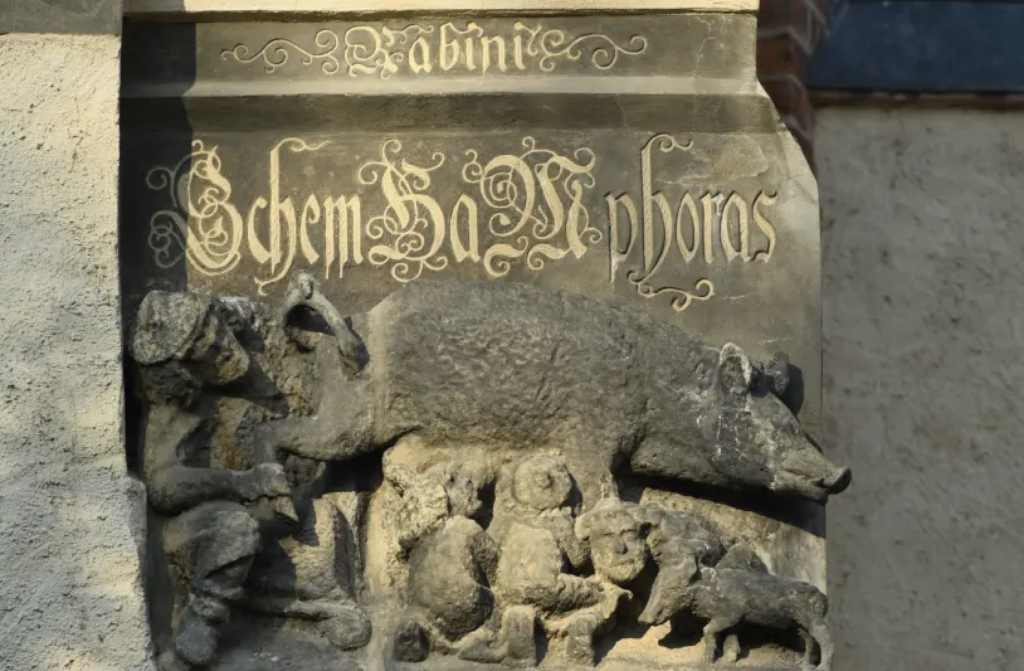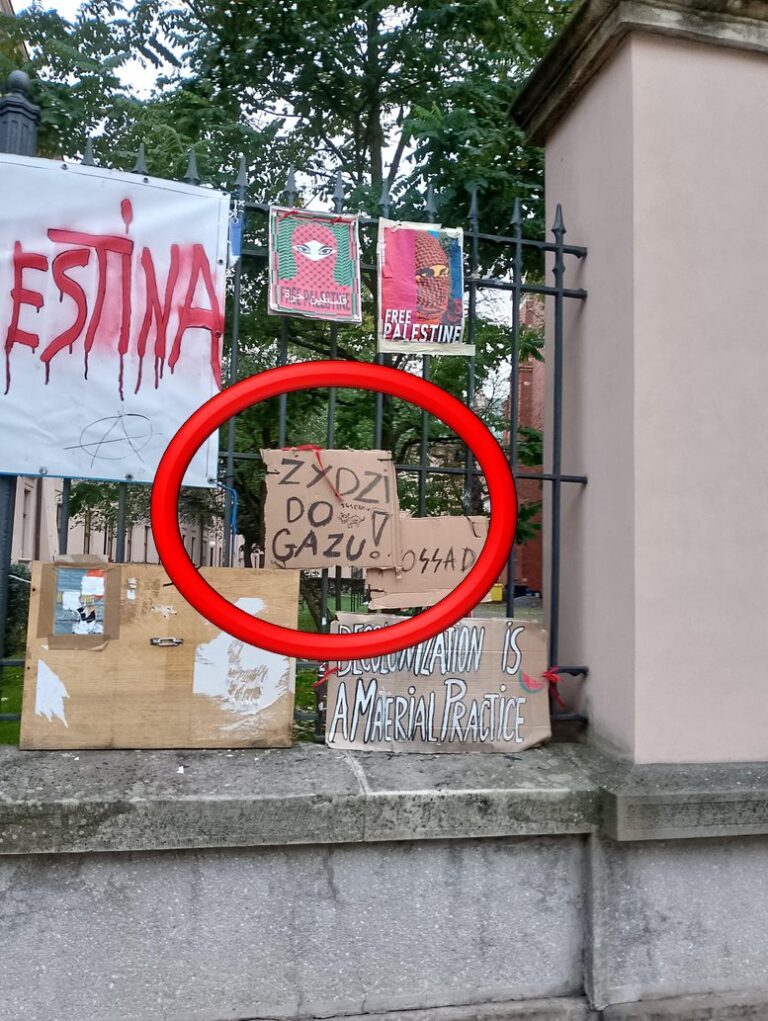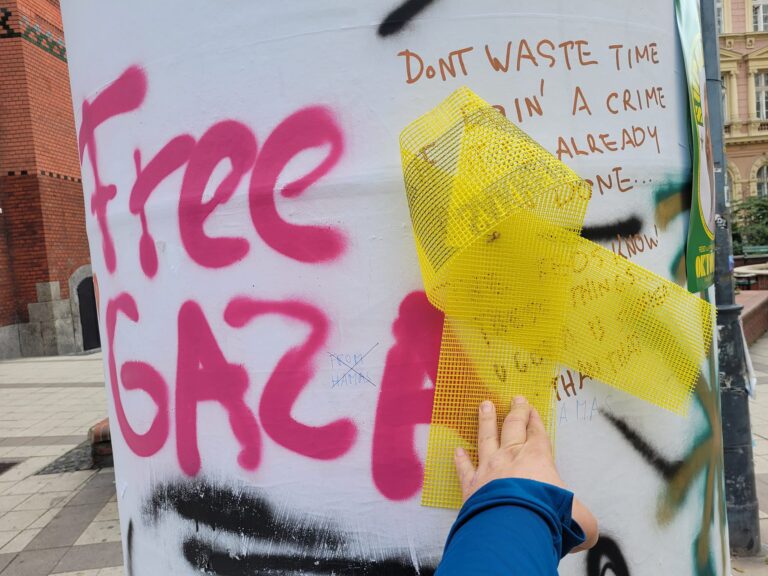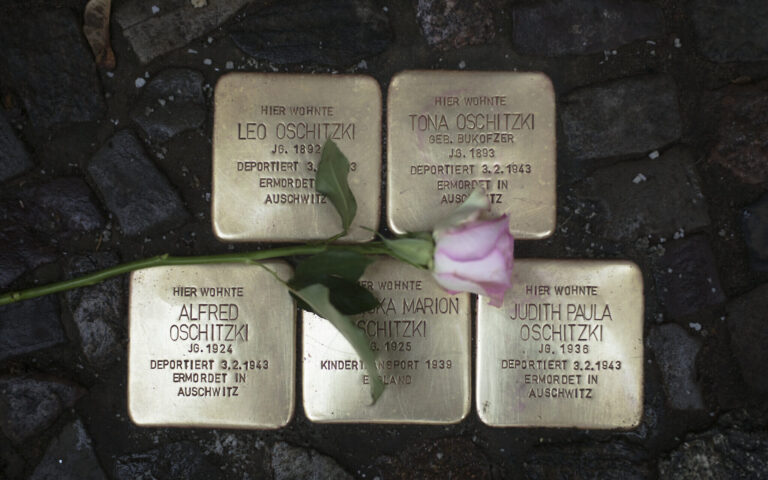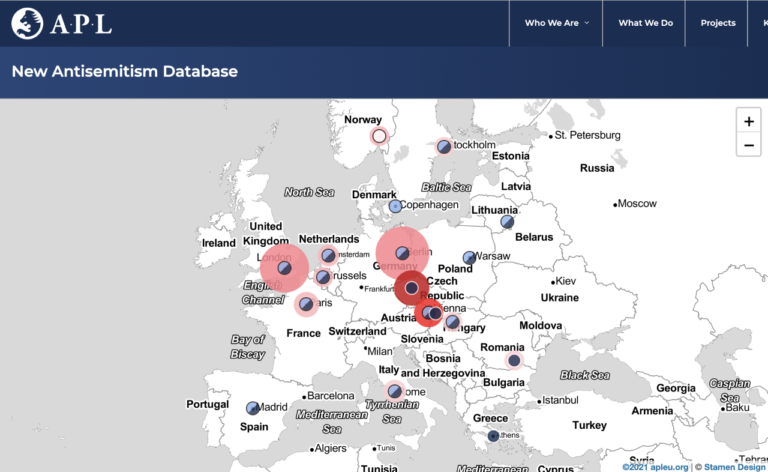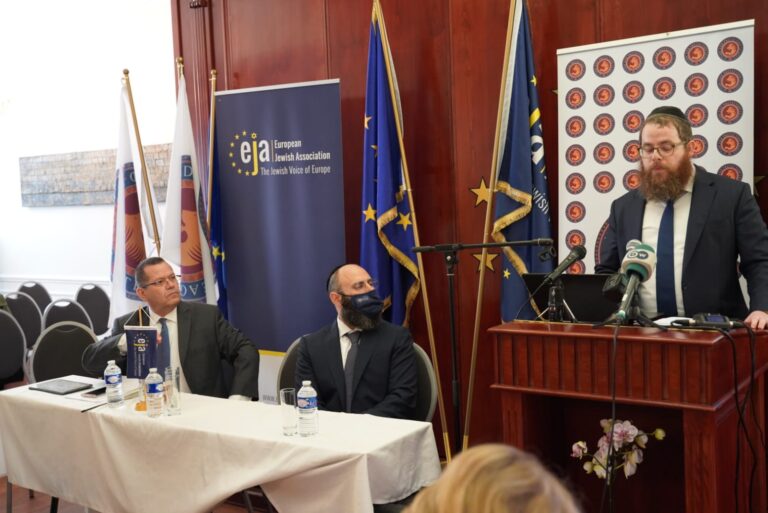A German federal court rejected the bid of a Jewish man to have a 700-year-old antisemitic statue removed from the Town Church in Wittenberg.
The Federal Court of Justice upheld rulings by lower courts on the “Judensau,” or “Jew pig,” sculpture on the Town Church in Wittenberg, which is one of more than 20 such relics from the Middle Ages still adorning European churches, reports the AP News.
The case went to federal judges after courts in the eastern state of Saxony-Anhalt ruled in 2019 and 2020 against plaintiff Michael Duellmann. He had argued that the sculpture was “a defamation of and insult to the Jewish people” that has “a terrible effect up to this day,” and has suggested moving it to the nearby Luther House museum.
Placed on the church about four meters above ground level, the sculpture depicts people identifiable as Jews suckling the teats of a sow while a rabbi lifts the animal’s tail. In 1570, after the Protestant Reformation, an inscription referring to an anti-Jewish tract by Luther was added.
In 1988, a memorial was set into the ground below, referring to the persecution of Jews and the 6 million people who died during the Holocaust. In addition, a sign gives information about the sculpture in German and English.
The federal court found that though viewed in isolation, the original statue “derides and denigrates Judaism as a whole,” the parish remedied the legal situation by adding the memorial explaining its historical background. That meant that the parish had distanced itself from the “defamatory and antisemitic message” of the statue, therefore “the legal system does not demand its removal,” the federal court said. It argued there was more than one way to remedy the problem, and a memorial pointing to the Christian church’s antisemitic mentality over centuries was one such possibility.
Germany’s main Jewish group argued for the memorial to be reworked, and the regional Lutheran bishop agreed.
The head of the Central Council of Jews, Josef Schuster, said the court’s decision to allow the statue to stay was understandable but argued that “both the Wittenberg parish and the churches as a whole must find a clear and appropriate solution for handling antisemitic sculptures,” because the memorial and the sign don’t contain “an unequivocal condemnation of the antisemitic sculpture.”
Regional bishop Friedrich Kramer said the church would support the further development of the memorial, since there is a consensus that the memorial and sign “today no longer satisfy the aspiration to break the effect” of the antisemitic statue.
However, Plaintiff Duellmann plans to take the case to Germany’s highest court, the Federal Constitutional Court.
